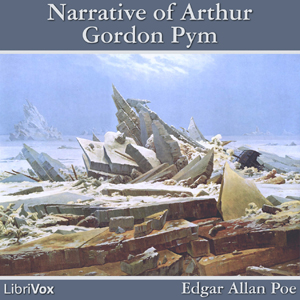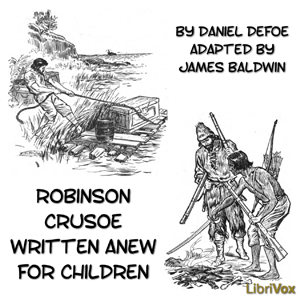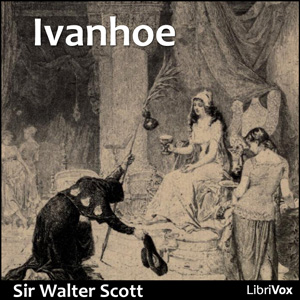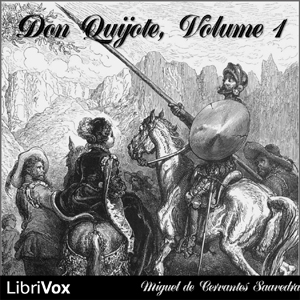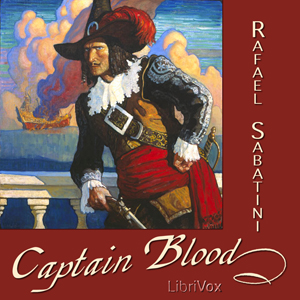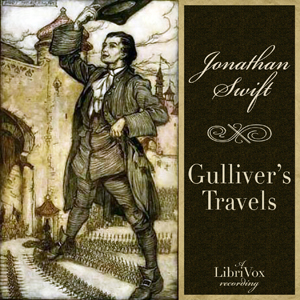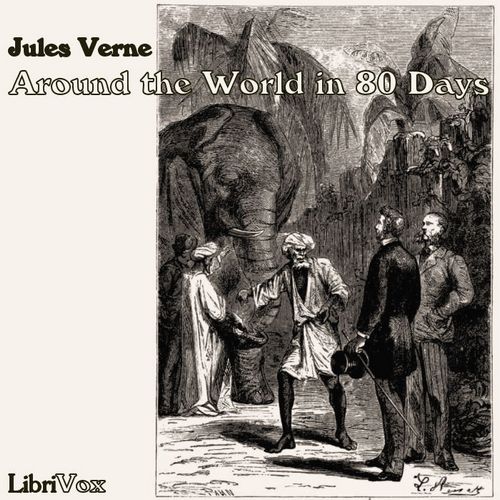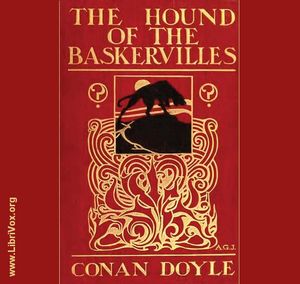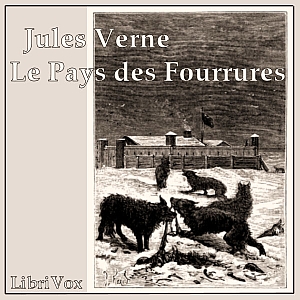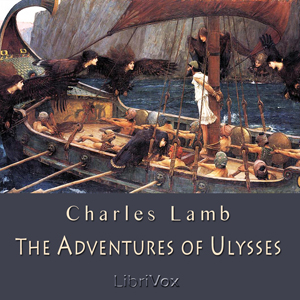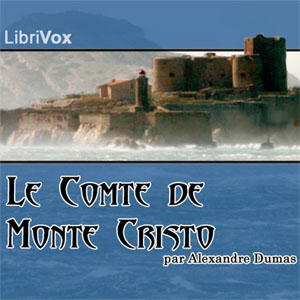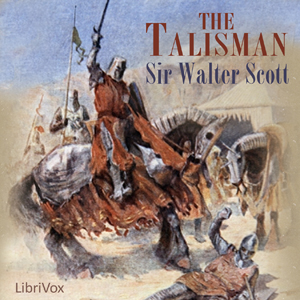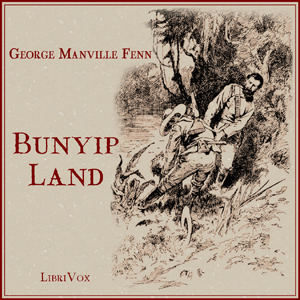The Narrative of Arthur Gordon Pym of Nantucket is Edgar Allan Poe’s only complete novel, published in 1838.The work relates the tale of the young Arthur Gordon Pym who stows away aboard a whaling ship called Grampus. Various adventures and mis-adventures befall Pym including shipwreck, mutiny and cannibalism. The story starts out as a fairly conventional adventure at sea, but it becomes increasingly strange and hard to classify in later chapters, involving religious symbolism and the Hollow Earth. Summary from Wikipedia
27 episodes
Robin Hood is the archetypal English folk hero; a courteous, pious and swashbuckling outlaw of the mediæval era who, in modern versions of the legend, is famous for robbing the rich to feed the poor and fighting against injustice and tyranny. He operates with his "seven score" (140 strong) group of fellow outlawed yeomen – named the Merry Men. He and his band are usually associated with Sherwood Forest, Nottinghamshire.The Victorian era generated its own distinct versions of Robin Hood. The traditional tales were often adapted for children, most notably in Howard Pyle's Merry Adventures of Robin Hood. These versions firmly stamp Robin as a staunch philanthropist, a man who takes from the rich to give to the poor.(Summary from Wikipedia)
22 episodes
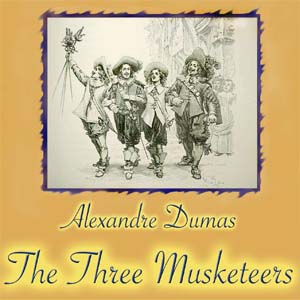
The Three Musketeers (Les Trois Mousquetaires) is a novel by Alexandre Dumas, père. It recounts the adventures of a young man named d'Artagnan after he leaves home to become a musketeer. D'Artagnan is not one of the musketeers of the title; those are his friends Athos, Porthos, and Aramis -- inseparable friends who live by the motto, "One for all, and all for one".
The Three Musketeers was first published in serial form in the magazine Le Siècle between March and July 1844. Dumas claimed it was based on manuscripts he had discovered in the Bibliothèque Nationale. It was later proven that Dumas had based his work on the book Mémoires de Monsieur D'Artagnan, capitaine lieutenant de la première compagnie des Mousquetaires du Roi (Memoirs of Mister D'Artagnan, Lieutenant Captain of the first company of the King's Musketeers) by Gatien de Courtilz de Sandras (Cologne, 1700).
Dumas' version of the story covers the adventures of D'Artagnan and his friends from 1625 to 1628, as they are involved in intrigues involving the weak King Louis XIII of France, his powerful and cunning advisor Cardinal Richelieu, the beautiful Queen Anne of Austria, her English lover, George Villiers, 1st Duke of Buckingham, and the Siege of La Rochelle. Adding to the intrigue are the mysterious Milady de Winter, and Richelieu's right-hand man, the Comte de Rochefort. (summary from wikipedia)
Get Twenty Years After here.
Get The Man in the Iron Mask here.
69 episodes
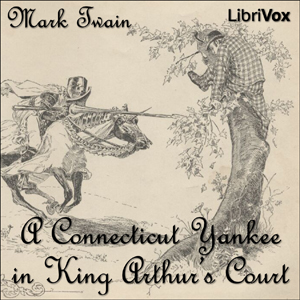
Come and hear the strange tail of The Boss Hank Morgan, a modern day (at the time of publication) Connecticut Yankee who inexplicably finds himself transported to the court of the legendary King Arthur (as the title of the book implies). Hank, or simply, The Boss, as he comes to be most frequently known, quickly uses his modern day knowledge and education to pass himself off as a great magician, to get himself out of all sorts of surprising, (and frequently amusing) situations, as well as to advance the technological and cultural status of the nation in which he finds himself.
In the rather un-subtle sub-text of the story, Twain uses The Boss to express a surprisingly pragmatic and frequently contradictory philosophy. The Boss explores the relative merits of Democracy, and Monarchy, he expresses his views on the “Nature v. Nurture” debate, he frequently speaks forcefully against an established Church, but just as strongly advocates for religion and a variety of churches (just not a compulsory one) and he devotes at least one afternoon to introducing his companions to the concept of inflation. In a far more subtle, yet no less forceful manner, the Boss shares with the reader some views about taxation, slavery (both literal and wage slavery), trade unions, the origins of the German language, the nature of marriage, and probably most powerfully, death.
It is a tall order for a relatively brief text, but Twain manages it all with surprising clarity. No one will agree fully with the Boss on all of these matters, and I would be surprised if Twain himself would. In fact the Boss’s views are so pragmatic, and often contradictory, the reader is left to wonder if Twain himself is alternately speaking through the Boss, and setting him up as a straw man. Either way it is a delightful story and a great piece of American Literature, to say nothing of an excellent argument for education.
(Review written by Steve Andersen)
45 episodes
Beowulf. [Translated by Francis Barton Gummere].This is a short but beautiful book, and the Gummere translation really captures the feel of the Old English. Beowulf tells the story of a mysterious young warrior who saves the Spear-Danes from the terrible monster Grendel and his venomous mother. Long a mainstay of English Literature 101 courses at universities around the world, it is not only one of the oldest, but one of the most exciting English folktales ever invented. (Summary by Caeristhiona)
8 episodes
Journey to the Interior of the Earth is an 1864 science fiction novel by Jules Verne (published in the original French as Voyage au centre de la Terre). The story involves a professor who leads his nephew and hired guide down a volcano in Iceland to the “center of the Earth”. They encounter many adventures, including prehistoric animals and natural hazards, eventually coming to the surface again in southern Italy. (Summary from wikipedia.org)
41 episodes
Im Jahr 1599 sind die Niederlande von den Spaniern besetzt. Die Stadt Antwerpen ist bevölkert von italienischen Söldnern. Doch die Niederländer leisten Widerstand. Auf See ist der Wille der “Wassergeusen” ungebrochen und ihre Schlagkraft von den Besatzern gefürchtet. Am meisten graut ihnen jedoch vor dem Flaggschiff: Die schwarze Galeere…
(Zusammenfassung von Felix)
6 episodes
Part One of Edgar Rice Burroughs’s Mars-Series. Easy, swank, pulp read about an omnipotent gentleman teleported to Mars, finding an outlandish society of ape-, tree- and lizardmen, red-, white-, yellowmen, brains on legs, strange bastions and curious apparatuses, where the strongest survives and women are needy beauties to be saved. How can something be so platitudinous and at the same time so imaginative and enthralling? Boys’ book for sure. (Summary by Stephan)
29 episodes
Adaptation of the story of Robinson Crusoe for grammar school children. Tells how the shipwrecked sailor makes a new life for himself on the island, providing shelter, food, and clothing for himself from the few tools he rescued from the ship and what he is able to find on the island. He lives on the island over twenty years before he is finally rescued and during that time must re-invent almost everything necessary for daily sustenance. (Summary from The Baldwin Project.)
15 episodes
The Lost World is a 1912 novel by Arthur Conan Doyle concerning an expedition to a plateau (native name is Tepuyes) in South America (Venezuela) where prehistoric animals (dinosaurs and other extinct creatures) still survive. The character of Professor Challenger was introduced in this book. Interestingly, for a seminal work of dinosaur-related fiction, the reptiles only occupy a small portion of the narrative. Much more time is devoted to a war between early human hominids and a vicious tribe of ape-like creatures. (summary by wikipedia)
16 episodes

The Swiss Family Robinson has delighted generations of readers with its exciting tale of a family which, though shipwrecked, displays “the right stuff” and builds a charming colony that later, they do not want to leave. Cut off from the comforts and companionship of other humans, they use a familiarity with natural history and biology to find the resources and build the tools to construct a canoe, weave cloth, irrigate a garden, and turn an immense hollow tree into a lofty house with a spiral staircase. They domesticate buffaloes, wild asses, and monkeys. They establish farms and plantations. And finally, they have a terrifying encounter with natives from a nearby island.Johann David Wyss, the author, did not live to complete his tale. Storytellers over the years have injected so many episodes into the various versions that probably none closely match the original. (Indeed, the Baroness de Montholieu expanded the book from two volumes into five when she translated it into French.) This effort was re-translated into English in 1849 by W.H.G. Kingston, abridging the edition severely. It follows the British sensibilities of the period in terms of sentence structure and emphasis. (Summary by Mark F. Smith)
52 episodes
Follows the fortunes of the son of a noble Saxon family in Norman England as he woos his lady, disobeys his father, and is loved by another. Set in late 12C England and in Palestine with Richard Cœur-de-Lion at the Crusades, it's another ripping historical yarn by Scott (summary by annise)
44 episodes
Treasure Island is an adventure novel, a thrilling tale of "buccaneers and buried gold." Traditionally considered a coming of age story, it is an adventure tale of superb atmosphere, character and action, and also a wry commentary on the ambiguity of morality—as seen in Long John Silver—unusual for children's literature then and now. (Summary from wikipedia.org)
26 episodes
Typee is Herman Melville's first book, recounting his experiences after having jumped ship in the Marquesas Islands in 1842, and becoming a captive of a cannibal island tribe. It was an immediate success in America and England, and was Melville's most popular work during his lifetime. It was not until the end of the 1930's that it was surpassed in popularity by Moby Dick, more than thirty years after his death. The story provoked harsh criticism for its condemnation of missionary efforts in the Pacific Islands. Many sought to discredit the book, claiming that it was a work of fiction, but this criticism ended when the events it described were corroborated by Melville's fellow castaway, Richard T. Greene, who appears in the story as the character Toby (Summary by Michael)
36 episodes
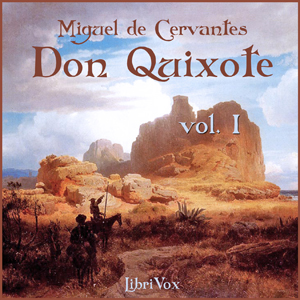
Don Quixote is an early novel written by Spanish author Miguel de Cervantes Saavedra. Cervantes created a fictional origin for the story in the character of the Morisco historian, Cide Hamete Benengeli, whom he claims to have hired to translate the story from an Arabic manuscript he found in Toledo's bedraggled old Jewish quarter.
The protagonist, Alonso Quixano, is a minor landowner who has read so many stories of chivalry that he descends into fantasy and becomes convinced he is a knight errant. Together with his companion Sancho Panza, the self-styled Don Quixote de la Mancha sets out in search of adventures. His "lady" is Dulcinea del Toboso, an imaginary object of his courtly love crafted from a neighbouring farmgirl by the illusion-struck "knight" (her real name is Aldonza Lorenzo, and she is totally unaware of his feelings for her. In addition, she never actually appears in the novel).
Published in two volumes a decade apart, Don Quixote is the most influential work of literature to emerge from the Spanish Golden Age and perhaps the entire Spanish literary canon. As a founding work of modern Western literature, it regularly appears at or near the top of lists of the greatest works of fiction ever published. (Summary from Wikipedia)
36 episodes
The Prisoner of Zenda tells the story of Rudolf Rassendyll, an English gentleman on holiday in Ruritania, a country not a thousand miles from Bavaria. There, by reason of his resemblance to the King of Ruritania he becomes involved in saving the King’s Life and his Throne from the King’s dastardly brother and his allies. Woods, moated castles, pomp, swordplay, gallantry, villainy and a beautiful princess. What story could ask for more? (Summary by Andy Minter)
The sequel Rupert of Hentzau is also available as a LIbriVox recording.
22 episodes
King Solomon’s Mines, first published in 1885, was a best-selling novel by the Victorian adventure writer H. Rider Haggard. It relates a journey into the heart of Africa by a group of adventurers led by Allan Quatermain in search of the legendary wealth said to be concealed in the mines of the novel’s title. It is significant as the first fictional adventure novel set in Africa, and is considered the genesis of the Lost World literary genre. - Haggard wrote over 50 books, among which were 14 novels starring Allan Quatermain.
(Summary by Wikipedia/John Nicholson)
20 episodes
Don Quijote de la Mancha (ortografía y título original —1605—, El ingenioso hidalgo Don Quixote de la Mancha) es una de las obras cumbre de la literatura española y la literatura universal, el libro más traducido después de la Biblia, escrito por Miguel de Cervantes.
La novela consta de dos partes: la primera, El ingenioso hidalgo don Quijote de la Mancha, fue publicada en 1605; la segunda, El ingenioso caballero don Quijote de la Mancha, en 1615.
La primera parte se imprimió en Madrid, en casa de Juan de la Cuesta, a fines de 1604. Salió a la venta en enero de 1605 con numerosas erratas, a causa de la celeridad que imponía el contrato de edición. Esta edición se reimprimió en el mismo año y en el mismo taller, de forma que hay en realidad dos ediciones de 1605 ligeramente distintas. Se sospecha, sin embargo, que existió una novela más corta, que sería una de sus futuras Novelas ejemplares. (Resumen de Wikipedia)
37 episodes
Captain Blood is an adventure novel by Rafael Sabatini, originally published in 1922. It concerns the sharp-witted Dr. Peter Blood, an Irish physician, who is convicted of treason in the aftermath of the Monmouth rebellion in 1685, and enslaved on the Caribbean island of Barbados. He escapes and becomes a pirate. [wikipedia]
Captain Blood was the basis for the Academy Award-nominated swashbuckling film that rocketed Errol Flynn and Olivia de Haviland to stardom in Hollywood. The fast-paced historical fiction of Rafael Sabatini is often compared with that of Robert Louis Stevenson and Alexandre Dumas. [DSayers]
31 episodes
Enigmatic Phileas Fogg accepts a wager about whether it's possible to circumnavigate the globe in 80 days or under. The book charts his adventures on the way. (Alex Foster)
26 episodes
Scaramouche is a romantic adventure and tells the story of a young aristocrat during the French Revolution. His successive endeavors as a lawyer, politician, actor, lover, and buffoon lead his enemies to call him "Scaramouche" (also called Scaramuccia, a roguish character in the commedia dell'arte), but he impresses many with his elegant orations and precision swordsmanship. The later film version includes one of the longest, and many believe, best swashbuckling sword-fighting scenes ever filmed.The novel has a memorable start (Book I: The Robe, Chapter I, 'The Republican'): "He was born with the gift of laughter and a sense that the world was mad. And that was all his patrimony. His very paternity was obscure, although the village of Gavrillacs had long since dispelled the cloud of mystery that hung about it."
(Summary by Gord)
36 episodes
Captain Nemo, The Nautilus, and the mysterious depths of the ocean. Unforgettable. Come join an adventure that will roam among coral and pearls, sharks and giant squid, with wonders of biology and engineering that will thrust us from the Antarctic to Atlantis. Whether voyaging a yarn of the glorious unknown, a tale of the darkness that grips the heart of men, or a reinterpretation of Homer’s Odyssey, we’ll all enjoy the fantastic trip. Seasickness optional. (Summary by Marlo Dianne)
A German version is available: Zwanzigtausend Meilen unter’m Meer
47 episodes
Gulliver's Travels (1726, amended 1735), officially Travels into Several Remote Nations of the World, is a novel by Jonathan Swift that is both a satire on human nature and a parody of the "travelers' tales" literary sub-genre. It is widely considered Swift's magnum opus and is his most celebrated work, as well as one of the indisputable classics of English literature. (Summary from Wikipedia)
40 episodes
Three children, forced to remain at school during the holidays, go in search of adventure. What they find is a magic castle straight out of a fairy tale, complete with an enchanted princess at the center of a maze. Or is it? The castle turns out to be just a country estate, and the princess is only the housekeeper's niece, playing at dressing up. But the magic ring she shows them proves -- to her surprise and horror -- to really be magic. Soon they are caught in an adventure where statues come alive, lost lovers are reunited, and wishes can be granted -- but always for a price. (Summary by Peter Eastman)
12 episodes
Around the World in Eighty Days (French: Le tour du monde en quatre-vingts jours) is a classic adventure novel by the French writer Jules Verne, first published in 1873. In the story, Phileas Fogg of London and his newly-employed French valet Passepartout attempt to circumnavigate the world in 80 days on a £20,000 wager set by his friends at the Reform Club. (Summary from Wikipedia)
37 episodes
Few things, even in literature, can really be said to be unique — but Moby Dick is truly unlike anything written before or since. The novel is nominally about the obsessive hunt by the crazed Captain Ahab of the book’s eponymous white whale. But interspersed in that story are digressions, paradoxes, philosophical riffs on whaling and life, and a display of techniques so advanced for its time that some have referred to the 1851 Moby Dick as the first “modern” novel.
(Summary by Stewart Wills)
44 episodes
A tale written for children in 1885.
It tells of a child of noble birth whose parents have fallen foul of the current royalty. He is placed in hiding and grows up with a bowyer and then apprenticed to an armourer just outside the gates of the City of London.
He becomes accomplished in arms and joins the campaign in France where we see the battles of Crecy and Poitiers through his eyes.
A tale of heroism and 14th century viciousness.
Great fun.(summary by jimmowatt)
23 episodes
The idea was to write a whole novel in the month of November, based on the guidelines of the National Novel Writing Month. The twist is that there are up to 30 people writing together, instead of one toiling alone. Each writer signed up to do one section of 1,700+ words, in English. Plot and particulars were agreed before the start. Each writer also recorded his/her own chapter, which can be downloaded here. The resulting novel is in the public domain. (Summary by Gesine)
32 episodes
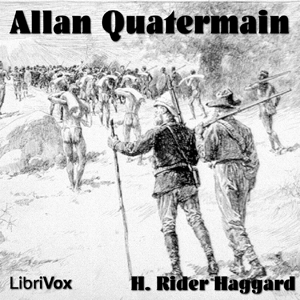
Allan Quatermain was the quintessential Victorian English gentleman cum African big-game hunter. In this book, the second in the series, Quaterman and his two good friends from KSM have tired of their dull and unfulfilling lives in England, and decide to search for the truth of an old tale about the existence of an isolated white kingdom deep in darkest Africa. Their journey and subsequent adventures are sure to satisfy those who enjoy tales of dangerous quests and heroic just-in-time derring-do. Allan Quatermain appears in some 15 to 18 stories or books by H. Rider Haggard. (The number varies by source and apparently depends on how one chooses to count the shorter stories.) Haggard suggests that Quatermain was the author of the works, and he (Haggard) only edited and published them. The most famous Quatermain book is the first, King Solomon’s Mines (1885), and the sequel (1887) was Allan Quatermain - in which the main character, shall we say, departs for a better place! All the other Quatermain books – even those whose events occurred earlier in time – seem to have been written after these two main titles. The internal chronology of Quatermain’s life is a big mess, to be honest. As you study the research and learn of the numerous contradictions of timing of events in the books, you see that conjecture and invention are required to create any kind of internal chronology that makes sense. So my advice is to read (listen to) the books for enjoyment, don’t take notes!, and don’t worry about how one event simply can’t be possible on the apparent date because it conflicts wtih some other event in a different story! Hey! It’s fiction – anything goes! (Summary by John Nicholson)
25 episodes
Greenmantle is the second of five Richard Hannay novels by John Buchan, first published in 1916 by Hodder & Stoughton, London. It is one of two Hannay novels set during the First World War, the other being Mr Standfast (1919); Hannay's first and best-known adventure, The Thirty-Nine Steps (1915), is set in the period immediately before the war started. - Hannay is called in to investigate rumours of an uprising in the Muslim world, and undertakes a perilous journey through enemy territory to meet up with his friend Sandy in Constantinople. Once there, he and his friends must thwart the Germans' plans to use religion to help them win the war, climaxing at the battle of Erzurum. (Summary from Wikipedia)
22 episodes
What really killed Sir Charles Baskerville? Is his nephew, Sir Henry, in danger from the legendary family curse, a gigantic black hound? Sherlock Holmes and Dr. Watson are on the case in this classic mystery, set on lonely Dartmoor in Devonshire. Neolithic ruins, a perilous quagmire, eerie sounds in the night, and (of course) fog all add to the fun, with an escaped convict thrown in for good measure. (Summary by Laurie Anne Walden)
15 episodes
The classic story of Sir Percy Blakeney and his alter ego, the Scarlet Pimpernel. A great adventure, set during the French Revolution. (Summary by Karen Savage)
31 episodes
En 1959, des officiers de la Compagnie de la Baie d'Hudson sont chargés d'aller fonder un fort au nord du 70e parallèle, au-delà du cercle polaire. Le fort est établi sur le Cap Bathurst, qui semble être le lieu parfait. Malheureusement, ce cap n'est pas fait de terre, mais de glace, et lors d'une éruption volcanique, le cap se détache du continent et part à la dérive, emportant tous ses occupants avec lui. Cela se gâte encore plus quand arrive le printemps et que le glaçon commence à fondre... (Résumé de Wikipedia)
47 episodes
H. Rider Haggard wrote Heart of the World in 1895 and it tells of the search for a secret and hidden Mayan civilization living in a long lost city filled with gold and jewels! It is also a love story of a couple willing to give up everything, and I mean EVERYthing, for true love. And it is a melodramatic adventure story of good against evil. I am not sure which side wins... however it is a wonderful read! (Description by Paul Hansen)
27 episodes
Red Shadows is the first of a series of stories featuring Howard's puritan avenger, Solomon Kane. Kane tracks his prey over land and sea, enters the jungles of Africa, and even faces dark Gods and evil magic -- all to avenge a woman he'd never met before. (Summary by Paul Siegel)
5 episodes
Lamb used Homer's Odyssey as the basis for the re-telling of the story of Ulysses's journey back from Troy to his own kingdom of Ithaca. Not a direct translation and deemed modern in its time, Lamb states in the preface that, "I have gained a rapidity to the narration which I hope will make it more attractive and give it more the air of a romance to young readers". (Summary by Rebecca)
11 episodes
The classic story of how Rat, Mole, and the other river-bankers saved Toad from his excesses. This book has it all: excitement, sentiment, destruction of private property (plenty of that), paganism, and a happy ending. The prose is beautiful and occasionally requires the use of a dictionary - I had to look up “asperities.” Written as a children’s story, The Wind in the Willows is enjoyed by many grown-ups who relish Grahame’s ability to evoke the long summer days of childhood. (Summary by Adrian Praetzellis)
12 episodes
This is the sequel to 'The Prisoner of Zenda'. Five years have passed. The King has become jealous of Rudolf Rassendyll and suspicious of the queen (Flavia)'s feelings towards him. Flavia decides that this must be the last year in which she sends to Rudolf the single red rose that betokens her love, and therefore she also sends via Fritz von Tarlenheim, her letter of good-bye.Count Rupert of Hentzau, banished from Ruritania after the incidents of the earlier book, is plotting his return. In furtherance of his scheme he obtains both letter and rose, and plots to place them before the King. Rudolf, Fritz and Sapt must prevent this at all costs... (Summary by Andy)
21 episodes

Don Quixote is an early novel written by Spanish author Miguel de Cervantes Saavedra. Cervantes created a fictional origin for the story in the character of the Morisco historian, Cide Hamete Benengeli, whom he claims to have hired to translate the story from an Arabic manuscript he found in Toledo's bedraggled old Jewish quarter.
The protagonist, Alonso Quixano, is a minor landowner who has read so many stories of chivalry that he descends into fantasy and becomes convinced he is a knight errant. Together with his companion Sancho Panza, the self-styled Don Quixote de la Mancha sets out in search of adventures. His "lady" is Dulcinea del Toboso, an imaginary object of his courtly love crafted from a neighbouring farmgirl by the illusion-struck "knight" (her real name is Aldonza Lorenzo, and she is totally unaware of his feelings for her. In addition, she never actually appears in the novel).
Published in two volumes a decade apart, Don Quixote is the most influential work of literature to emerge from the Spanish Golden Age and perhaps the entire Spanish literary canon. As a founding work of modern Western literature, it regularly appears at or near the top of lists of the greatest works of fiction ever published. (Summary from Wikipedia)
43 episodes
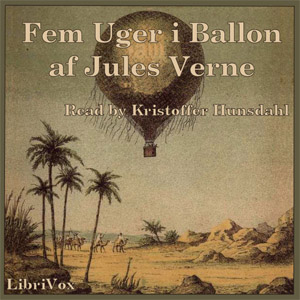
Fem Uger i Ballon: Lydbog efter spændingsroman af Jules Verne. Oversættelse efter den 23. af det franske Akademi prisbelønnede udgave. Andreas Schous Forlag, 1883. Hvis man skal sætte ord på hvad videnskaben geografi går ud på, er det at beskrive og analysere jordens overflade, dens landskaber, mennesker og dyreliv - at dykke ned i dens jordlag og at studere hvordan vindene
blæser. For kun halvanden hundrede år siden var mægtige område i det indre Afrika næsten ukendt for europæerne. Man anede fra sporadiske kilder, at det vældige kontinent gemte på mystiske riger og lande, frodige
vidtstrakte skove, endeløse savanner og søer så store som have. Men det
var uhyre vanskeligt at udforske kontinentet og meget risikabelt for de
som prøvede. Mange døde af sygdom og udmattelse i de uigennemtrængelige junglevildnis, andre tørstede ihjel i dets ørkener og igen andre blev myrdet på bestialsk vis af fjendtligt sindede indfødte.
Den ukuelige engelske globetrotter dr. Samuel Fergusson sætter sig for at gennemføre det risikable eksperiment at udforske Afrika fra øst til vest
ved hjælp af sin luftballon, ledsaget af sin nære ven skotten Dick Kennedy og den tro tjener Joe. Romanen rummer ikke alene de tre opdigtede heltes enestående færd over det ukendte land, men giver også et indblik i de mange autentiske ekspeditioner, som dengang blev forsøgt foretaget i det indre Afrika; ikke sjældent med et tragisk endeligt.
Meget har ændret sig i vor viden om kontinentet og ikke mindst er vort syn på de afrikanske folkeslag blevet betydeligt mere nuanceret siden Jules Verne skrev romanen i 1863. Ikke desto mindre giver romanen et interessant og sjældent billede af et oprindeligt Afrika, fra før den tid hvor
europæerne for alvor satte sit præg på kultur og landskab. (Forord af Kristoffer Hunsdahl)
32 episodes
Thoroughly engaging, at times even harrowing, adventure tale set in the San Francisco gold rush. Detailed depiction of its time and place, complete with everything from mining techniques to societal attitudes. You'll feel like you're in the diggings. (Summary by Lee Elliott)
29 episodes
In 1859, officers of the Hudson's Bay Company travel through the Northwest Territories of Canada on a mission to found a fort at 70 degrees, north of the Arctic Circle. At some point, an earthquake occurs, and from then on, laws of physics seem altered (a total eclipse happens to be only partial; tides are not perceived anymore). They eventually realise that they are not where they are supposed to be. (Wikipedia)
47 episodes

Baroness Emma ("Emmuska") Orczy (September 23, 1865 – November 12, 1947) was a British novelist, playwright and artist of Hungarian origin. She was most notable for her series of novels featuring the Scarlet Pimpernel. Some of her paintings were exhibited at the Royal Academy in London.
(Summary by Wikipedia)Cast
Narrators: Luisa Hall, Sheldon Slade tpincombe, Beth Thomas, Missie, Justin S Barrett, hpark, Belinda Brown, Snapdragon, Holly Bliss, Miriam Esther Goldman, Rissa Byrne, Eliza, J L Raimundo, E.Lee
Citoyen Bibot, Mr Hempseed, Vicomte de Tournay, Captain Briggs, Lord Fancourt, Brogard, Sergeant: JimOCR
Corporal: Miriam Esther Goldman
Crowd: Algy Pug, Beth Thomas, TriciaG
Old Hag in Cart: Timothy H. VanderWall
Captain of Guard, Mr Jellyband: Bill Mosley
Sally: Paige
Jemima: Marissa Oakey
Martha: LovesChesterton
Jimmy Pitkin: Sami Koivisto
Stranger: TriciaG
Sally: Rissa Byrne
Lord Antony: Jay Saunders
Comtesse de Tournay: CM Slosson
Sir Andrew, Groom: Algy Pug
Suzanne: Missie
Stranger, Spy: Roseanne Schmidt
Lady Marguerite: Holly Bliss, Lisa Theriot, Missie, Miriam Esther Goldman, Laurie Anne Walden
Beggar: Helen Jensen
Sir Percy: om123, Curtis Jewell, D. A. Frank, Ken Theriot
Armand: Paul-Gabriel Wiener
Chauvelin: Ken Theriot, Alex Foster
Lady Portarles: Megan Kunkel
Lord Grenville, Majordomo, Desgas: ToddHW
Louise: Alana Jordan
Runner: J L Raimundo
Benjamin Rosenbaum: D. A. Frank
Soldier: Beth Thomas
Editing by ToddHW
31 episodes
El Dorado, by Baroness Orczy is a sequel book to the classic adventure tale, The Scarlet Pimpernel. It was first published in 1913. The novel is notable in that it is the partial basis for most of the film treatments of the original book. (Summary from wikipedia)
50 episodes
The novel picks up where Tarzan of the Apes left off. The ape man, feeling rootless in the wake of his noble sacrifice of his prospects of wedding Jane Porter, leaves America for Europe to visit his friend Paul d'Arnot. On the ship he becomes embroiled in the affairs of Countess Olga de Coude, her husband, Count Raoul de Coude, and two shady characters attempting to prey on them, Nikolas Rokoff and his henchman Alexis Paulvitch. (Summary from Wikipedia)
26 episodes
Edmond Dantès, a young seaman with a promising future, is arrested at his wedding ceremony under calomnious charges, and locked up in the Chateau d'If for 14 years. During this time, he secretly meets another detainee, l'Abbé Faria, an erudite believed to be insane, who becomes his friend and teacher, and who, upon his death, gives Edmond the secret to a hidden treasure.Dantès then manages to escape, almost drowning in the process, and is believed by all to be dead. With the knowledge and the treasure transmitted by l'abbé Faria, and his own wish for revenge, Edmond Dantès plots the downfall of his enemies under the identity of the Count of Monte-Cristo.Summary by Jc Guan.
122 episodes
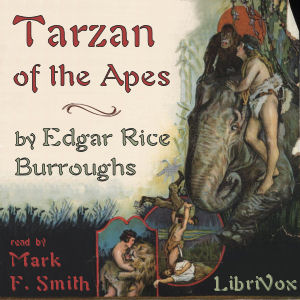
Tarzan of the Apes is Burroughs’ exciting, if improbable, story of an English lord, left by the death of his stranded parents in the hands of a motherly African ape who raises him as her own. Although he is aware that he is different from the apes of his tribe, who are neither white nor hairless, he nevertheless regards them as his “people.” When older, larger, stronger apes decide that he an undesirable to be killed or expelled from the tribe, it is fortunate that Tarzan has learned the use of primitive weapons.Although small and weak by ape standards, Tarzan is a human of god-like strength and agility to men who discover him. By studying these people, he gradually decides he is not an ape at all, but human.And when he meets Jane, a beautiful American girl marooned with her father and friends on the hostile coast of Africa, Tarzan conceives love for her. When they are unexpectedly rescued before Tarzan can find a way to reveal his feelings to Jane, he determines to become civilized and follow her into the world of people – to find her and wed her, though he must cross continents and oceans, and compete with two other suitors for her hand.This story was the subject of a successful film in 1932, with Tarzan being played by Johnny Weissmuller, who acted in a further eleven Tarzan films. According to Weissmuller in an interview with Mike Douglas, his famous ape-call was audio stitched together from a soprano, an alto, and a hog-caller! Summary by Mark F. Smith
28 episodes
The Talisman is a gripping tale set near the end of the Third Crusade. King Richard the Lionheart is grievously ill, and all around him the leaders from allied countries plot and scheme to gain personal power, putting the future of the crusade in jeopardy. Sir Kenneth of Scotland finds himself caught up in events, and finds both his honour and his life are now on the line. Can a cure be found for the King? Can Kenneth redeem his honour? – Written by Rowen.
32 episodes
Joe Carstairs is a boy on a farm in Australia. His father is a keen naturalist who, some years before had set off for New Guinea in search of specimens, and never been heard of again. Joe is old enough to mount a search expedition, and takes with him a local doctor and an aboriginal worker on his farm. They find themselves joined by a stowaway, Jimmy, whose father is a squatter (farmer) nearby, together with his dog, Gyp.
This team sets off, arrive in New Guinea, hire some more porters, and travel guided by some sixth sense straight to where Mr. Carstairs has been kept a prisoner, along with another Englishman, whose mind has gone, under the stress of his imprisonment.
There are the usual close shaves and tense moments, but finally they achieve their end, and return home triumphantly:
42 episodes
At 5 years old Leo Vincey is left in the care of a Cambridge professor by the name of Horace Holly. His father leaves him a strange casket which he is to open on his 25th Birthday. On opening the Casket Leo and Horace discover the strange history of Leo's ancestors. Leo and his adoptive father Horace must travel all the way to Africa in order to uncover the solve his family's strange history. - Written by Lizzie Driver
29 episodes
